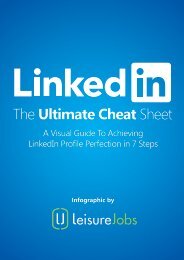ARCHITECTURE
artofinequality_150917_web
artofinequality_150917_web
Create successful ePaper yourself
Turn your PDF publications into a flip-book with our unique Google optimized e-Paper software.
3.3 Schools<br />
developments in the field<br />
Pollyanna Rhee<br />
Real estate, according to Stephen Malpezzi of the<br />
University of Wisconsin School of Business, constitutes<br />
“roughly 70 percent of the world’s tangible capital<br />
stock, and one of the largest elements of consumption.”<br />
But within academic institutions, he argues,<br />
real estate programs have historically found themselves<br />
occupying a tenuous position between different<br />
departments and schools. Though strongly tied to<br />
the profession, no official body accredits degrees in<br />
real estate or mandates the real estate curriculum in<br />
the United States, nor is there a uniform regulatory<br />
body for licensing. 2 The question arises: Is real estate<br />
development a practice? A discipline? A field? 3<br />
The timeline below, based in large part on an<br />
interview with Jesse Keenan, Research Director of<br />
The Center for Urban Real Estate at Columbia University<br />
in February 2015, presents a series of excerpts<br />
from publications by academics and professionals<br />
regarding the state and status of the evolving field<br />
of real estate development in the United States, contextualized<br />
with significant events, such as founding<br />
dates of real estate degree programs and relevant legislative<br />
acts. These impressions cover almost a century<br />
and highlight debates over not only the nature of<br />
the field, but the legitimacy of its existence within research<br />
institutions at all. While academics consider<br />
their relationship to other disciplines, they also keep<br />
in mind their ties to the real estate profession, which<br />
encompasses a workforce that ranges from individual<br />
brokers, to large-scale developers, to economists.<br />
The selections aim to highlight the connections<br />
between research institutions and trade groups,<br />
beginning with a focus on land economics early in<br />
the twentieth century. From there we can trace a<br />
trajectory: from land grant universities, to financial<br />
analysis of real estate in business schools especially<br />
after World War II, to real estate development in<br />
architecture schools as part of urban design and planning<br />
programs. Taken as a whole, these various perspectives<br />
reveal conceptions of real estate as both<br />
plots of land open for development and intangible<br />
assets of exchange.<br />
1881<br />
1892<br />
1903<br />
1908<br />
1920<br />
1920s<br />
1927<br />
Wharton School founded at University of Pennsylvania,<br />
offers first real estate course in 1905. 4<br />
Richard Ely teaches “Landed Property and the Rent<br />
of the Land” at the University of Wisconsin, considered<br />
to be the first college-level real estate course. 5<br />
Richard M. Hurd publishes what some consider the<br />
first important book in the modern age of real estate,<br />
Principals of City Land Values. 6<br />
Establishment of National Association of Real Estate<br />
Exchanges, which becomes the largest trade organization<br />
for real estate brokers with 120 founding<br />
members, in Chicago. 7 In 1910 the NAREE founds the<br />
National Estate Journal. In 1916 they adopt the term<br />
“realtor” to identify professionals who are members<br />
of the association.<br />
Richard Ely founds the Institute for Research in<br />
Land Economics at the University of Wisconsin before<br />
moving it to Northwestern University in 1925. 8<br />
Ely’s “Land Economics Series” includes: Ernest M.<br />
Fisher, Principles of Real Estate; Fly and Edward W.<br />
Morehouse, Elements of Land Economics; Fredrick A.<br />
Babcock, The Appraisal of Real Estate. Series continues<br />
into 1930s.<br />
real estate education<br />
Arthur Mertzke, director of education and research<br />
for the National Association of Real Estate Boards:<br />
“Real estate today is no longer one of the occupations<br />
in which one can be successful without a fair degree of<br />
special training. Even a long and costly experience does<br />
not teach a man all that he must know to conduct his<br />
business soundly and successfully . . . 52 universities<br />
and colleges now offer courses. 9 . . . Even though we<br />
discount some of the work now being done as superficial,<br />
the building of the permanent structure of professional<br />
real estate education, erected on the solid foundations<br />
of the new science of Land Economics, can no<br />
longer be questioned.” 10<br />
166 167






